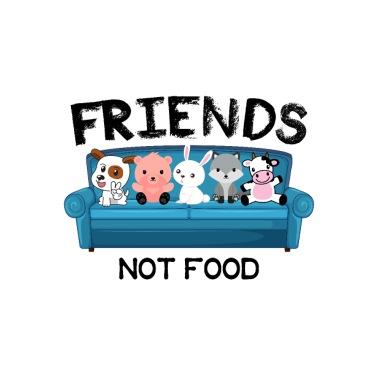🐾 From Cage to Chain: The True Human and Ecological Cost of Animal Industry Systems

Modern animal agriculture goes far beyond the familiar narratives of meat and dairy. Its impact stretches into our social fabric, human communities, and planetary well‑being. Unpacking this system reveals a deeply intertwined web of cruelty—magnified by every consumer choice.
Modern animal agriculture goes far beyond the familiar narratives of meat and dairy. Its impact stretches into our social fabric, human communities, and planetary well‑being. Unpacking this system reveals a deeply intertwined web of cruelty—magnified by every consumer choice.

🧠 Cultural and Social Perspectives: How Eating Meat Normalizes Violence
In the Cultural & Social Perspectives section of Cruelty.farm, it’s explained how certain societies internalize the notion that some animals—like cows, pigs, and chickens—are merely food. This “carnist” ideology distances us from the reality of animal suffering and helps perpetuate systems of normalized abuse. The cultural framing around diet not only shapes habits—it shapes values.
💬 Psychological Toll: What This Diet Does to Our Mental Health
Countless individuals experience internal conflict from participating in animal-based diets while empathizing with creatures. According to the Mental Health & Psychology section, this cognitive dissonance can lead to anxiety, guilt, and emotional distress. Many report feeling relief and clarity upon transitioning to plant-based living, seeing it as aligning action with conscience.
🏘 Community Impacts & Justice: Marginalized Groups Suffer Most
The system of industrial animal agriculture has deep social inequalities. In Impacts on Local Communities , Cruelty.farm highlights how factory farms disproportionately burden low-income communities and communities of color. Pollution, waste, and odors create health and quality-of-life crises in these regions, while corporate profits remain privatized.
📜 Legal Action & Policy: Transforming Systems Through Advocacy
Real change requires strategic action. The section on Government & Policy outlines how legislative initiatives—such as bans on foie gras, cage-free regulations, or antibiotic restrictions—reflect growing momentum. Community advocacy, aligned with legal frameworks, is vital in limiting industrial abuse and promoting ethical food systems.
🛠 Education & Individual Action: Tools for Change
Beyond diet, every individual can advocate for change. Cruelty.farm’s Education section collects stories of successful community campaigns, curricula in schools, and accessible resources that enable people to influence friends, family, and institutions with facts and compassionate messaging.
🌍 Why It Matters
Animals Don’t Beget Suffering—People Do
It’s not nature that confines, torments, or commodifies animals—it’s humans constructing systems powered by profit, habit, and denial. Seeing animals as sentient beings breaks the cycle.
Sustainability Isn’t Optional—It’s a Moral Imperative
Industrial animal farming contributes massively to climate change, deforestation, and resource depletion. The broader societal angle demands we treat this not as a niche concern, but as a collective crisis deserving legal and institutional solutions.
Resilience Through Compassion
Health, justice, ecology—they all depend on bridging empathy with action. Choosing plant-based options, supporting legislation, and educating others all reinforce each other in building a kinder, equitable world.
✅ Final Thoughts
Every human choice echoes far beyond the dining table. Factory farming isn’t only about suffering animals—it disrupts communities, pollutes environments, and corrodes personal integrity. Exploring deeper issues like culture, psychology, legal reform, and community impact reveals how intertwined these problems are.
By engaging with the resources at Cruelty.farm and empowering ethically informed decisions—whether via diet, advocacy, or education—we can foster a food system aligned with compassion, health, and sustainability.
Learn more:
برچسب ها :Animal products ، cruelty.farm ، Dairy allergy ، Dairy free ، Dairy harms ، Healthy eating ، Meat risks ، Plant Based ، Red meat cancer ، Vegan diet ، Vegan food ، Vegan health
- نظرات ارسال شده توسط شما، پس از تایید توسط مدیران سایت منتشر خواهد شد.
- نظراتی که حاوی تهمت یا افترا باشد منتشر نخواهد شد.
- نظراتی که به غیر از زبان فارسی یا غیر مرتبط با خبر باشد منتشر نخواهد شد.


ارسال نظر شما
مجموع نظرات : 0 در انتظار بررسی : 0 انتشار یافته : 0